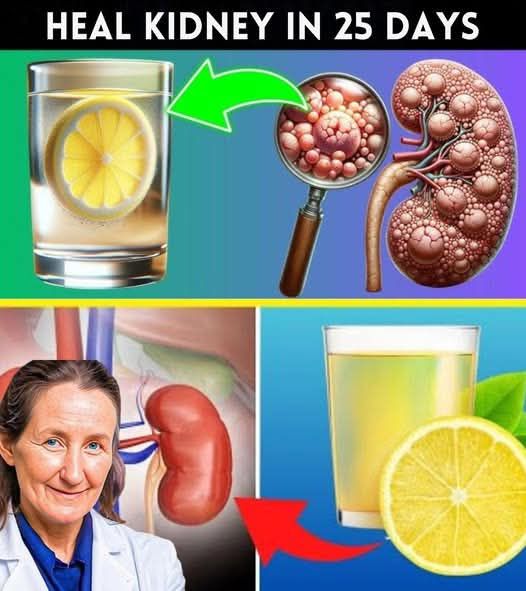ADVERTISEMENT
### 4. **Monitor and Manage Blood Pressure**
High blood pressure is one of the leading causes of kidney disease, and kidney disease can also cause high blood pressure. It’s essential to monitor your blood pressure regularly, especially if you are at risk for hypertension.
– **How to manage blood pressure**: If your blood pressure is high, work with your doctor to implement a plan for lowering it. This may include dietary changes, exercise, stress reduction techniques, and possibly medication. Reducing sodium intake, losing excess weight, and increasing physical activity can all help lower blood pressure.
### 5. **Maintain a Healthy Weight**
Obesity increases the risk of developing diabetes, high blood pressure, and kidney disease. Maintaining a healthy weight through diet and exercise can reduce your risk of kidney problems.
– **Tips for weight management**: Focus on eating a balanced diet and engaging in regular physical activity. Be mindful of portion sizes and try to avoid high-calorie, processed foods.
### 6. **Limit Alcohol Consumption and Avoid Smoking**
Excessive alcohol consumption and smoking can both harm kidney health in different ways. Alcohol can increase blood pressure and lead to kidney damage over time, while smoking reduces blood flow to the kidneys, impairing their ability to function.
– **Moderation is key**: If you choose to drink alcohol, do so in moderation. For most people, this means up to one drink per day for women and up to two drinks per day for men.
– **Quit smoking**: Smoking cessation is one of the best things you can do for your kidneys and overall health. Talk to a healthcare professional about resources and strategies to quit smoking.
### 7. **Avoid Overuse of Over-the-Counter Painkillers**
Nonsteroidal anti-inflammatory drugs (NSAIDs), such as ibuprofen and naproxen, can cause kidney damage if used excessively. Long-term or frequent use of these drugs can strain the kidneys and even lead to kidney failure.
– **Use with caution**: If you need pain relief, consult with your healthcare provider about alternative options that are less likely to harm your kidneys. Always follow the recommended dosage and avoid self-medicating for chronic pain.
### 8. **Get Regular Health Screenings**
If you are at risk for kidney disease due to factors like family history, diabetes, or high blood pressure, it’s essential to get regular check-ups to monitor kidney function. Early detection of kidney problems can help prevent further damage.
– **Tests to ask for**: Urine tests to check for protein, blood tests to measure kidney function (creatinine and glomerular filtration rate or GFR), and blood pressure measurements are common ways to assess kidney health.
### 9. **Herbal Remedies and Natural Supplements for Kidney Health**
Some natural remedies and herbs have been traditionally used to support kidney health. While more research is needed, certain herbs and supplements may offer benefits:
– **Cranberry**: Known for supporting urinary tract health, cranberry may help reduce the risk of urinary tract infections, which can lead to kidney infections if left untreated.
– **Dandelion root**: Dandelion is believed to support kidney detoxification and promote urine production.
– **Nettle leaf**: Nettle is often used in traditional medicine for its diuretic properties and potential to support kidney function.
– **Turmeric**: The active compound curcumin in turmeric is known for its anti-inflammatory properties and may help reduce kidney inflammation.
Always consult with your healthcare provider before trying new supplements or herbal remedies, especially if you are taking other medications.
## Conclusion: Prioritize Kidney Health for a Long, Healthy Life
Your kidneys are integral to your overall health, and taking care of them should be a priority. By staying hydrated, eating a balanced diet, exercising regularly, and avoiding harmful habits like smoking and overusing painkillers, you can protect your kidneys and ensure that they continue to function properly.
Kidney disease often develops slowly and silently, so it’s essential to be proactive in your approach to kidney health. Regular check-ups, a kidney-friendly lifestyle, and smart choices can help you maintain optimal kidney function and live a long, healthy life.
Taking care of your kidneys is more than just avoiding kidney disease—it’s about enhancing your quality of life, supporting your body’s detoxification processes, and improving your overall well-being. Start today by incorporating these simple, effective practices into your routine, and give your kidneys the care and attention they deserve.
